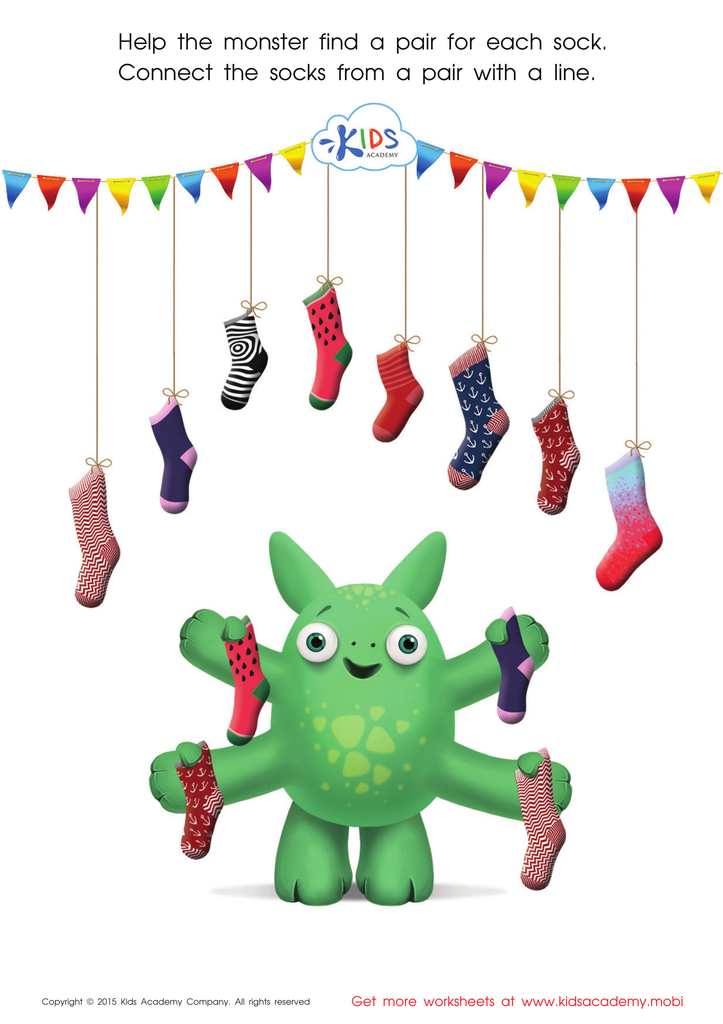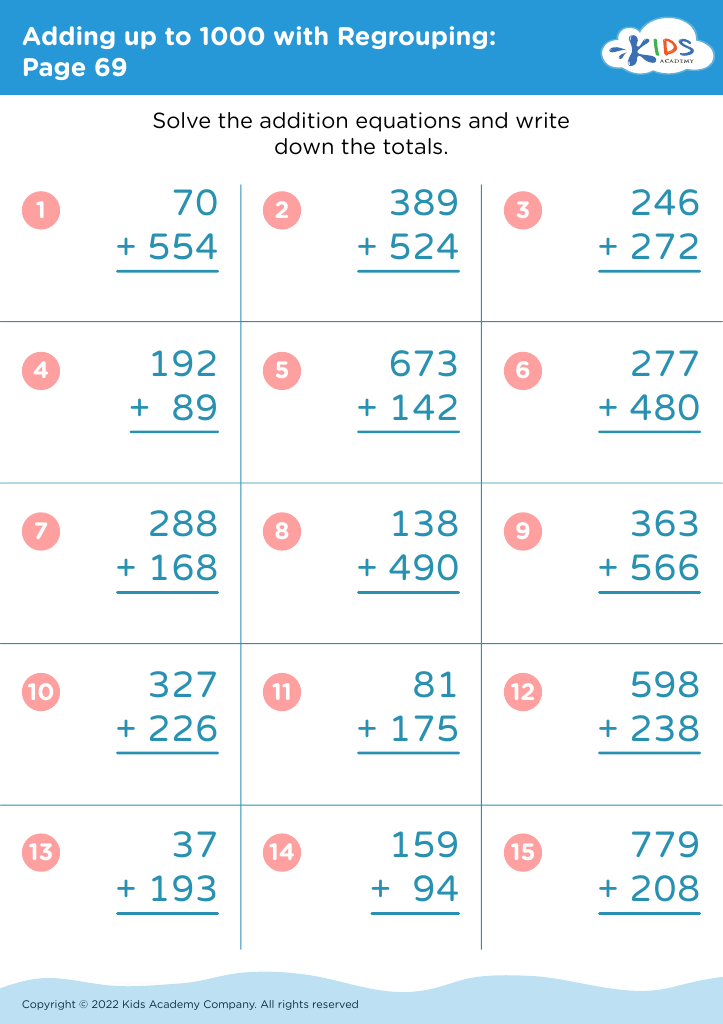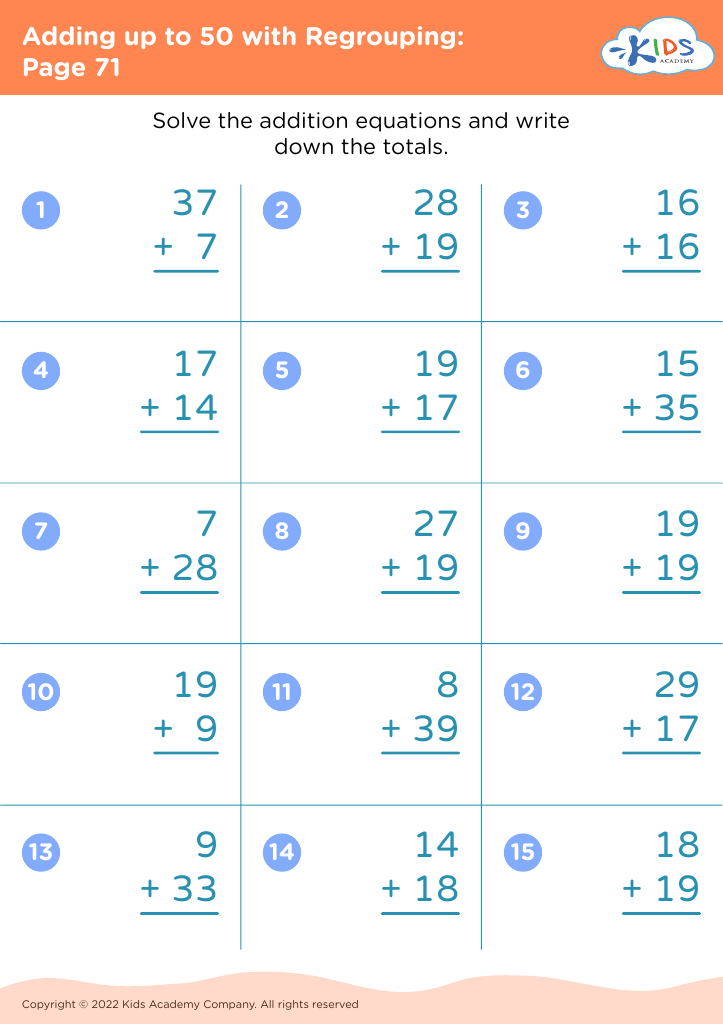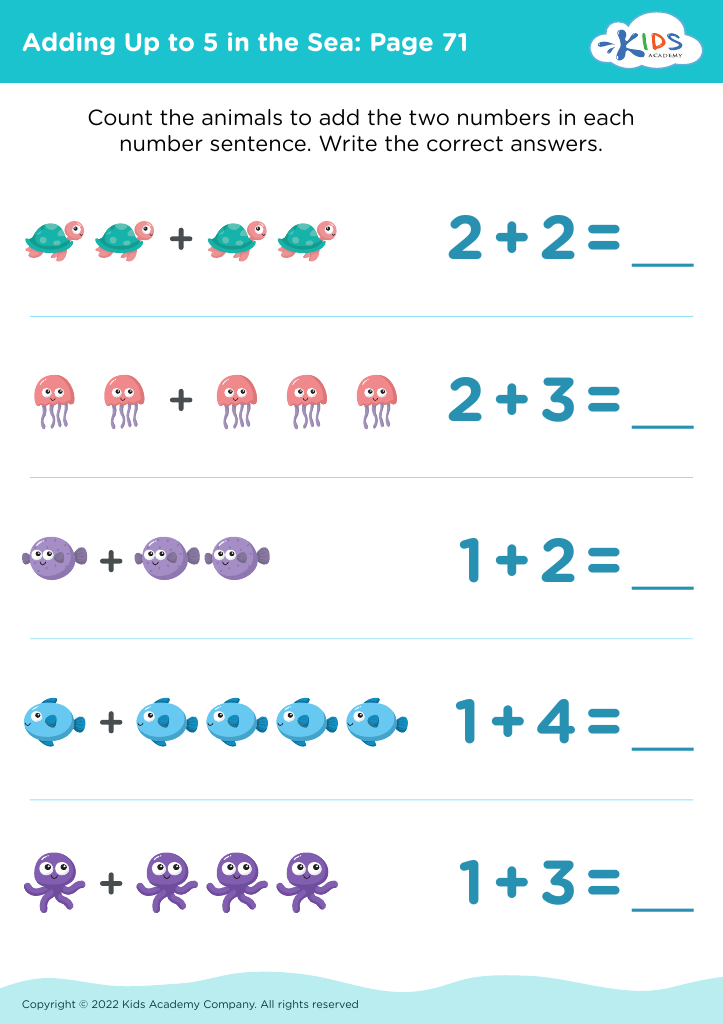Visual discrimination Addition & Subtraction Worksheets for Ages 5-9
6 filtered results
-
From - To
Enhance your child's math skills with our engaging Visual Discrimination Addition & Subtraction Worksheets, designed for children aged 5-9. These worksheets combine fun visuals and challenging math problems to strengthen essential skills in recognizing patterns, differences, and similarities, while also honing addition and subtraction strategies. Ideal for home or classroom use, our carefully crafted exercises promote critical thinking and improve overall math fluency. With vibrant illustrations and age-appropriate activities, children will enjoy practicing math in a playful and effective manner. Download and start fostering your child's mathematical confidence and visual processing skills today!


Math Matching Game: Monsterв's Socks Worksheet
Visual discrimination is a pivotal skill for young learners, especially in the context of addition and subtraction for children aged 5-9. This skill allows children to recognize, differentiate, and interpret visual information, which is essential when solving math problems. As they encounter different numerals, shapes, and mathematical symbols, being able to discern slight variations helps them avoid common mistakes and enhances their overall understanding of mathematical concepts.
For parents and teachers, nurturing visual discrimination can support students’ cognitive development, improving their focus and attention to detail. Such abilities are not only applicable in math but also aid in reading and writing, thus reinforcing overall academic success. Moreover, fostering these skills early can help identify potential learning difficulties, allowing for timely interventions.
Moreover, engaging activities further promote visual discrimination while keeping learning fun and interactive. This approach nurtures a positive attitude toward math, reducing anxiety over numbers and increasing confidence. Therefore, by emphasizing visual discrimination in their teaching approach, educators and parents can lay a strong foundation for children, paving the way for future mathematical achievements and vital problem-solving skills. Ultimately, investing in this foundational skill not only enhances academic performance but also equips children with critical thinking abilities essential for lifelong learning.



























